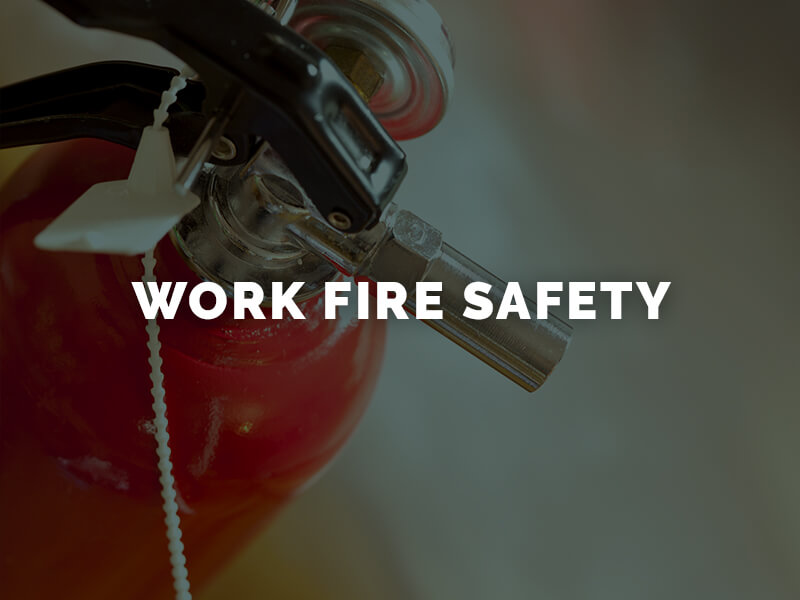Fires can happen anytime, anywhere, including in the workplace. A fire at work could be disastrous, causing you and other employees severe burns, smoke inhalation injuries and explosion injuries. Your employer might be in charge of overall workplace safety, but making a group effort to prevent fires at work could save lives.
As an employee, take your safety into your own hands. Take proactive steps to minimize the risk of fires and burns. If you do suffer a burn injury in a work-related fire, you may be eligible for workers’ compensation and/or recovery through a personal injury lawsuit.

Your employer should have elements in place to prevent and respond to fires at work. This should include smoke alarms on each floor of the building, all in working order; fire extinguishers and sprinklers; emergency exits without anything blocking them; proper places to discard hazardous wastes; equipment maintenance logs; fire and burn safety gear for workers; and fire safety signage and emergency information posted. Your employer should also have a public fire evacuation plan.
Your supervisor should be open and honest when asked questions about the building’s fire safety. If the supervisor does not have answers, is ill-prepared, negligently ignores fire hazard complaints or intentionally breaks fire safety codes in the workplace, you have rights. You can report the individual to someone higher up in the company or the Human Resources Department to demand a resolution. You can also file a safety complaint with the Occupational Safety and Health Administration (OSHA).
Preventing a fire is always better than trying to respond once one has already begun. Regardless of your industry, your workplace could have fire hazards such as open flames, electrical cords, circuit breakers and kitchen appliances. Although it is your employer’s responsibility to maintain a safe workspace and prevent fire hazards, due diligence as an employee could potentially prevent a fire. As someone who is on the floor day in and day out, you may notice a fire hazard before your employer does.
Always report safety issues immediately, such as worn-out electrical cords, damaged appliances, wastepaper on the floor, overloaded circuits, lack of protective gear or poorly trained coworkers. If your employer does not do anything to remedy the fire hazard, report it to OSHA. Your employer cannot retaliate against you for doing so and you can keep your complaint anonymous. OSHA can investigate the situation, assess penalties against your employer for safety code violations, force your employer to take fire hazards more seriously and create a safer workplace.
All workplaces must have fire evacuation plans. Your employer should post the plans visibly in the workplace, such as near staircases or in shared breakrooms. Know your building’s layout and how to safely and quickly evacuate from your desk or workstation in case of a fire. Never take the elevator during a fire – always use the stairs. Assist your coworkers and exit the building immediately. Pull a fire alarm if you detect a fire to alert the nearest fire station. Relocate to a safe place away from the building and call 911 to report the fire. Do not go back into the building for anything or anyone. If you suffered any burn injuries, consult with a Denver personal injury attorney about the right to file a claim.